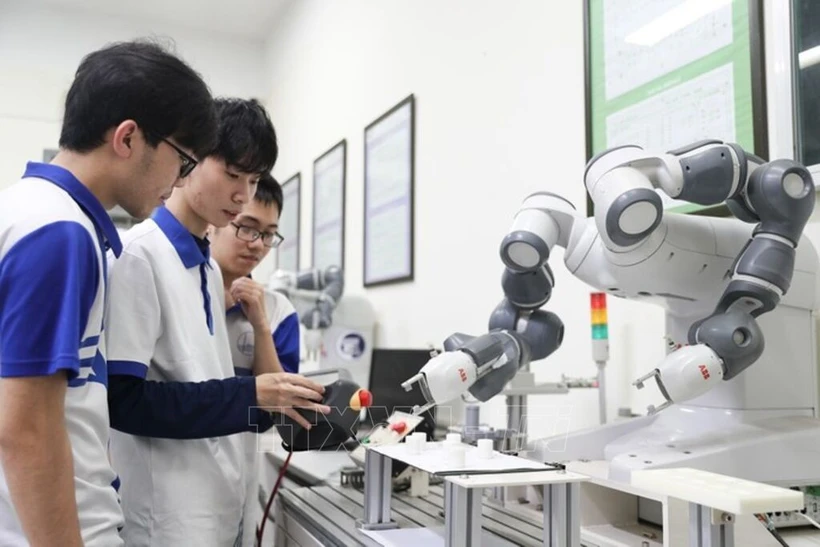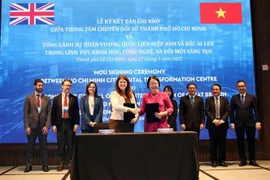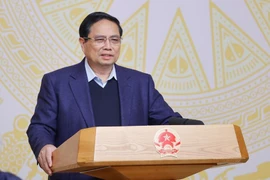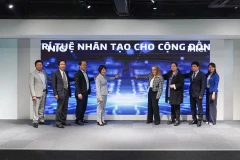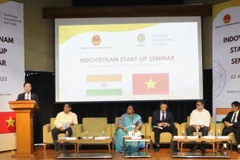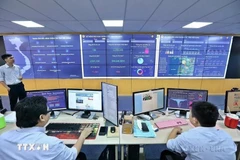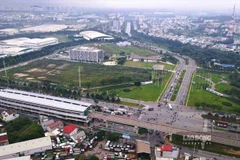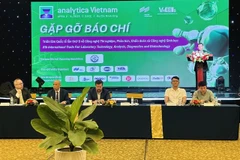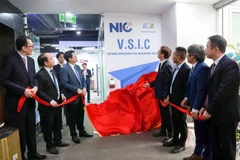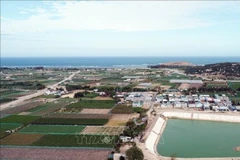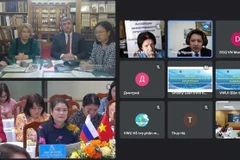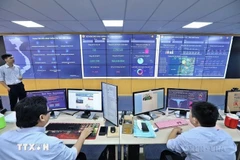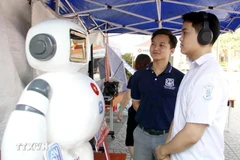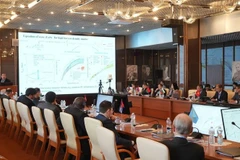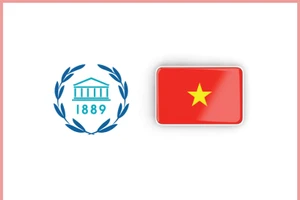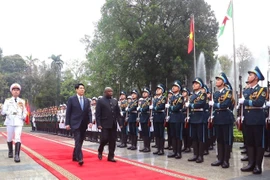Hanoi (VNA) – As Vietnam is entering a new era – the era of the nation's rise, together with science – technology development, and digital transformation, innovation is a strategic driving force that will help Vietnam make a breakthrough in a new development cycle.
Minister of Science and Technology Nguyen Manh Hung said that innovation involves promoting technological advancements in enterprises to increase labour productivity, mostly through preferential loans and tax reductions. Innovative startups are encouraged with new business models and technologies mainly via venture capital funds and regulatory sandbox mechanisms that allow staff to think, act, and boldly pilot new ideas and solutions outside the current institutional environment.
Science, technology, innovation, and digital transformation must aim for the ultimate goal of enhancing national competitiveness, contributing to socio-economic development, ensuring national defence and security, and improving the quality of life for the people, he said.
The contributions of science, technology, innovation, and digital transformation to economic growth must be identified and measured properly, Hung said.
The Minister also pointed out that the allocation of scientific and technological resources to research institutions must be based on effectiveness. For example, an investment of 3% of the State budget in science-technology development, innovation and digital transformation should yield a corresponding 3% GDP growth.
Despite recognising the importance of innovation, Vietnam still lacks specific mechanisms and policies to promote innovation in key emerging fields in business and technology. The existing mechanisms and policies are not conducive to developing an innovation ecosystem.
According to Director of the Institute for Brand and Competition Strategy Dr. Vo Tri Thanh, innovation in Vietnam has been slow in recent years. To change development methods and growth models, Vietnam needs to rely more on innovation and increase labour productivity.
Previously, the innovation ecosystem included the State, research institutions, schools, and businesses, with the State at the centre of innovation. Now, businesses must become the focal point of national innovation, Thanh said.

The Mekong Delta Innovation and Startup Centre. (Photo: VNA)
Nguyen Mai Duong, Director of the Innovation Department under the Ministry of Science and Technology, said that in the fourth Industrial Revolution, innovation is no longer an option but a vital factor for enhancing national competitiveness.
After the Politburo issued Resolution 57 on breakthrough development in science, technology, innovation, and national digital transformation, the ministry is urgently finalising draft amendments to the Law on Science, Technology, and Innovation. The draft will include many mechanisms and policies to promote innovation, for example, decentralisation, simplifying administrative procedures, digital transformation in scientific research and technology development, with businesses at the centre of the national innovation system.
Additionally, the process and procedures must be simplified, and digital transformation will be intensified in scientific research, technology development, and innovation, particularly in state management, to enhance transparency, ethics, and integrity in scientific and technological activities.
Duong assessed that innovation policies in Vietnam are being refined. Vietnam is gradually asserting its position as an attractive destination for the semiconductor and artificial intelligence industries.
Many programmes will support high-quality human resource training in AI, semiconductors, and other scientific fields, combined with partnerships with major global technology corporations for technology transfer and development experience.
With the convergence of AI and semiconductor technology, Vietnam is facing a new cycle of opportunities, where science, technology, and innovation are not only development drivers but also keys to help the country break through and grow strongly on the global technology map.
Vu Quoc Huy, Director of the National Innovation Centre, stated that the government has tasked the centre with building and implementing the human resource development programme for the semiconductor industry by 2030 with a vision towards 2050 and coordinating the national steering committee for semiconductor industry development to promote the semiconductor sector.
In AI, the centre has also launched important initiatives in collaboration with global leaders such as Google, Meta and NVIDIA.
Huy affirmed that Vietnam welcomes global partners and corporations to continue exploring investment opportunities in innovation in Vietnam. The Vietnamese government is committed to creating the most favourable conditions for investors and businesses in the field of innovation./.
